The Importance of Reading "The Gulag Archipelago”
The Literary Investigation by Aleksandr Solzhenitsyn
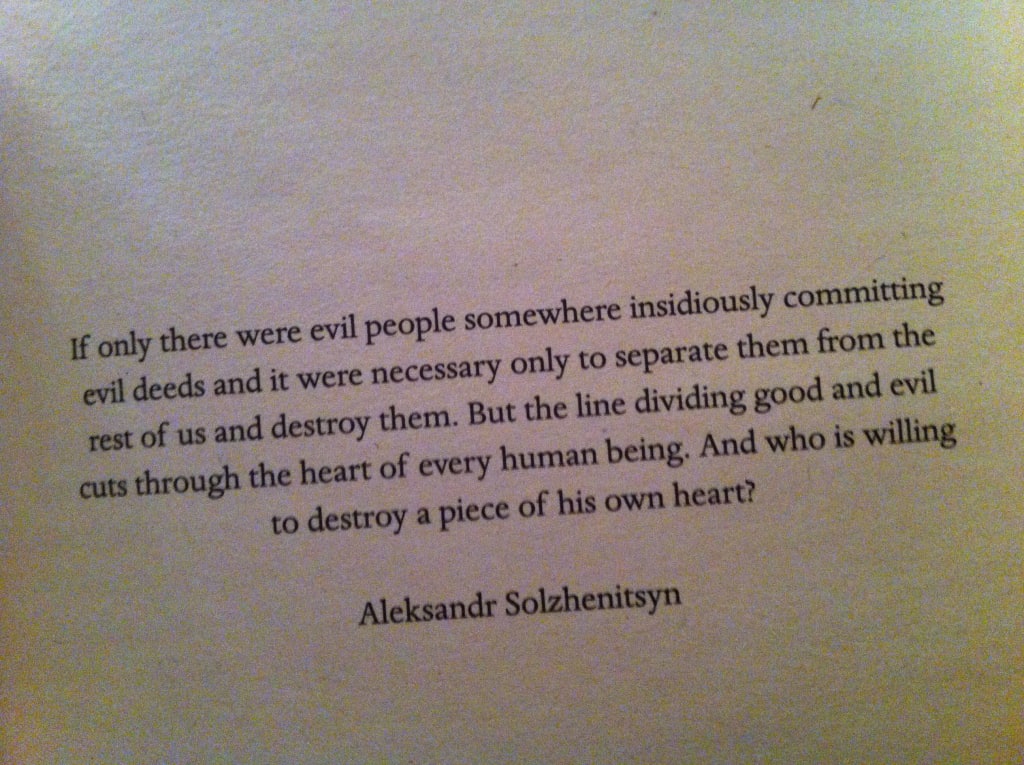
When it comes to reading in the 20th century, many people think of the main few authors: Virginia Woolf, F. Scott Fitzgerald and probably Nabokov and Kerouac if we are being a little bit out there. But very rarely do I hear anybody speak of Aleksandr Solzhenitsyn’s famed literary experimental biography, part investigative journalism and part historical consciousness narrative - “The Gulag Archipelago”. In our modern times, it is probably one of the most important texts if we wanted to learn about the failings of a state and government towards its people, and in hindsight we can all say ‘well, they could have done A, B and C differently…’ but Aleksandr Solzhenitsyn gives us a whole new view on this. Instead of hindsight of what could have been done differently, Solzhenitsyn tells us, ‘this is what happened, this is why it happened…’ complete with outcomes in the midst which may have been considered to our own audience to be counterproductive to revolution such as: the brainwashing and Stockholm syndrome of the prisoners and the way in which many simply accepted their fate - finally, Aleksandr Solzhenitsyn ends on the ‘here is what the history books, films and criticisms of the empire will not tell you…’ thus rendering all of our hindsight opinions pretty much useless when attempted to be used in action.
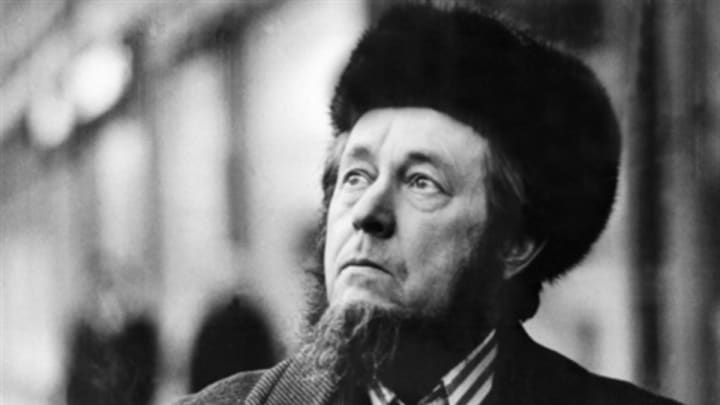
One of the reasons it is important to read this particular text is to study the fight for basic human rights which was still going on after the book was eventually published in the mid-1970s. It seems to teach us that though the past is riddled with stories and narratives of the killing of the Tsar, Tsarina and the children, the present seems to be hindered by the requirement to keep those narratives in favour of the new era and the future (in which the book is finally published) is looking back on that time with the contempt of not being able to fully notice in the moment that certain human rights were being taken away in order to save face for the state. The quotation that is used in the book seems to get the atmosphere of this contempt for the time and place of the new regime completely correct: “By now we are even unsure whether we have the right to talk about the events of our own lives.” A reflection of the entire novel as an experiment in being able to talk about his own life and the lives of those around him within the camps. His diction more than often suggests not only that he was not allowed to talk about this during the time he was in the camp but he was not even allowed once he came out and the Stalinist Regime fell upon the death of its overlord. The lines of his pondering are almost always written in a figurative present tense, a ‘what if’ of situations of the present time:
“Here is a riddle not for us contemporaries to figure out: Why is Germany allowed to punish its evildoers and Russia is not? What kind of disastrous path lies ahead of us if we do not have the chance to purge ourselves of that putrefaction rotting inside our body? What, then, can Russia teach the world?”
It is plausible to think that within the author’s own lifetime of getting this published in the 1970s, he was still under not only scrutiny from his own country, but befalling to the scrutiny of others who were yet unaware of the realities of what was going on in the camps even though the latter chapters of this book seem to state the knowledge was becoming more spread across the empire as it was being revealed to what horrors the prisoners were being subjected to. Other countries had yet to gather all of this news together and decide as a continent that this was against the vast majority of human rights. As we know, it would not be until the 1990s that the entire regime of the Soviet Union actually fell entirely.
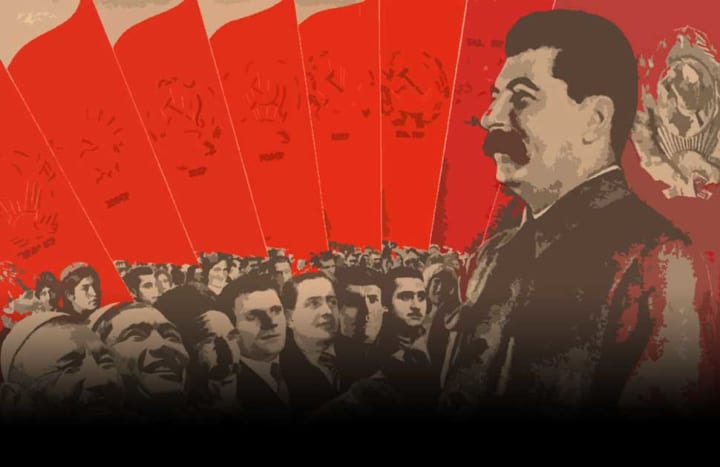
Another reason that more people should read this book is because of what is told to us and what is not. The author does his best to explain the situations as he knew them. The time in which he was in prison, the time of which others were in prison and those who gave their all to trying to escape on trucks by simply laying low (in the very literal sense) are all included within this narrative. However, Aleksandr Solzhenitsyn seems to tell us that not everything is within this text no matter how much he tells us of the sheer brutalities or the amount of intense violence and degradation towards the prisoners that went on - there is still always more:
“We shall never now be able to arrive at any judgment of the full scale of what took place, of the number who perished, or of the standard they might have attained. No one will ever tell us about the notebooks hurriedly burned before departures on prisoner transports, or of the completed fragments and big schemes carried in heads and cast together with those heads into frozen mass graves. Verses can be read, lips close to ear; they can be remembered, and they or the memory of them can be communicated. But prose cannot be passed on before its time. It is harder for it to survive. It is too bulky, too rigid, too bound up with paper, to pass through the vicissitudes of the Archipelago.”
Even though the author himself was in one of these camps, there will never be enough evidence to state the entire scale of what went on there. Even when we come to the finalising chapters in which the prisoners rise up against the system, we still have this empty hole in which we really do not know how many were killed out of the requirement to not let them out of the camp, how many were tortured to death or how many quite literally had the life beaten out of them. When Solzhenitsyn covers the man who was shot randomly and dragged by his legs into a forbidden zone to make it look like he was killed for a reason, the prisoners rise up and mention it to those investigating life at the camps - he seems to mention that this man was killed only a few months or so before he was due to be released. And so, with this conclusion drawn, we can honestly say that this book is important for its depiction of the shocking reality of camp life - the life in which prisoners at any moment, could simply be killed for someone not wanting them to leave and speak. Ironically, it was this man’s death which caused the uprising to actually stride forwards.

One more reason to find this book important to read is its take on survival. The entire first half of the book seems to be made out of the idea ‘survive at any cost’ and seems for the most part, to reach its true potential during the uprising of the prisoners in which demands are made and thus, the requirement to survive has not only worked - but it has paid off too. Not many other books look at survival like this and so, with that in mind, we read this novel in the hope of gaining access to what survival really means when you have been deemed a traitor by your own country - arrested on a formality and jailed for up to a decade at a time:
“And the conclusion is: Survive to reach it! Survive! At any price!
This is simply a turn of phrase, a sort of habit of speech: "at any price."
But then the words swell up with their full meaning, and an awesome vow takes shape: to survive at any price.
And whoever takes that vow, whoever does not blink before its crimson burst—allows his own misfortune to overshadow both the entire common misfortune and the whole world.
This is the great fork of camp life. From this point the roads go to the right and to the left. One of them will rise and the other will descend. If you go to the right—you lose your life, and if you go to the left—you lose your conscience.”
Survival as both message and theme is important when we read not just about the camps but the way in which life operated under the Stalinist Regime. A very Robespierre-esque regime in which singular words against the state in the street, by a friend, could find you plus that friend and people in the vicinity who did not report it, to be arrested and imprisoned in a labour camp. The author speaks about incidents like this which, though they may seem trivial, were considered to be actions of terrorism to the state and the Stalinist Regime:
“The village club manager went with his watchman to buy a bust of Comrade Stalin. They bought it. The bust was big and heavy. They ought to have carried it in a hand barrow, both of them together, but the manager's status did not allow him to. "All right, you'll manage it if you take it slowly." And he went off ahead. The old watchman couldn't work out how to do it for a long time. If he tried to carry it at his side, he couldn't get his arm around it. If he tried to carry it in front of him, his back hurt and he was thrown off balance backward. Finally he figured out how to do it. He took off his belt, made a noose for Comrade Stalin, put it around his neck, and in this way carried it over his shoulder through the village. Well, there was nothing here to argue about. It was an open-and-shut case. Article 58-8, terrorism, ten years.”
The very notion of the symbolism of making a ‘noose for Comrade Stalin’ is preposterous in today’s terms when it comes to a terrorist arrest, but in this period it was a very real threat. As the powers of Stalin grew, of course he would need to increase the security of those within his country against a possible rebellion. This is because he too, knew that there would be one. And there were many, but hardly any of them worked until the prison officers began to be investigated many years later. The survival theme is present here since there are obvious requirements to live rather than fight back against arrest - out of the fear of being killed.
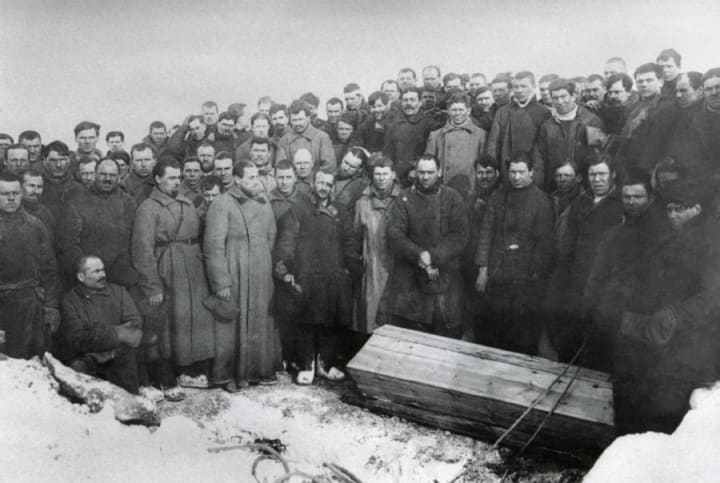
It is this very fear of being killed by the guards before being placed in a camp that ultimately disallows any form of constructive criticism towards the camps. It is first and foremost the prisoners, the author states, allowing this to happen and then, as their behaviour is reflected upon the outside - everyone else turns a blind eye. The ‘right’ to treat other people like slaves to the system was what the Stalinist Regime was based upon and so though this menial work not fit for regular socialists would be done by the prisoners, the work that was far out and away from many other people, was also reserved for prisoners. They were neither seen nor heard by other people and yet, everyone had an inkling of what was happening. The argument being that survival was both a requirement and a fault of the prisoners themselves for allowing themselves to be treated this way:
“We have to condemn publicly the very idea that some people have the right to repress others. In keeping silent about evil, in burying it so deep within us that no sign of it appears on the surface, we are implanting it, and it will rise up a thousandfold in the future. When we neither punish nor reproach evildoers, we are not simply protecting their trivial old age, we are thereby ripping the foundations of justice from beneath new generations.”
The very act of burying this idea so deep that the very notion of it becomes a taboo (as in the case of the investigation of the prison officers who shot a man for no reason becoming a bigger investigation into the treatment of prisoners in the entire camp) shows that the prisoners therefore grow some sort of Stockholm syndrome towards their captors, and those that don’t are punished by labour, torture and murder upon pain of death. Thus, another good idea to read this book is to analyse in which way we see the relationship of oppressor and oppressed. As the author explains, it is a ‘top-down’ problem, not a ‘bottom-up’ problem when it comes to power.
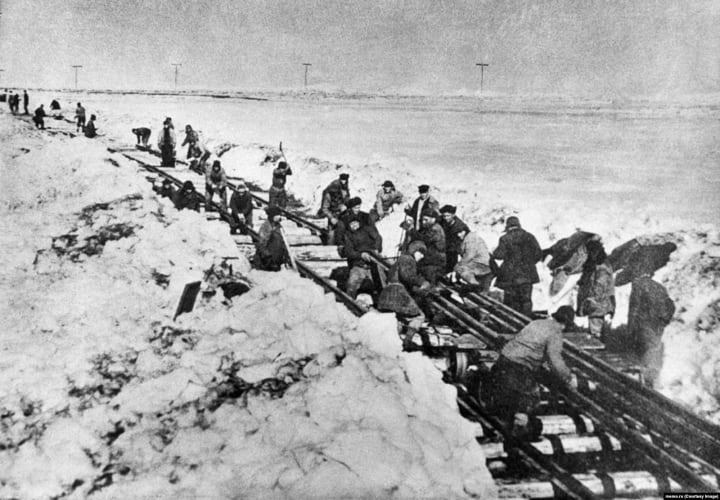
In conclusion, one thing we can honestly say is that much of this book applies to the prison systems in place within the USA today and many of the ways in which power impacts the outcomes of an individual’s life is still present in the UK today. Though, as this book teaches us, to be quiet is to be complicit. This is the importance of reading ‘The Gulag Archipelago’.
About the Creator
Annie Kapur
195K+ Reads on Vocal.
English Lecturer
🎓Literature & Writing (B.A)
🎓Film & Writing (M.A)
🎓Secondary English Education (PgDipEd) (QTS)
📍Birmingham, UK






Comments
There are no comments for this story
Be the first to respond and start the conversation.